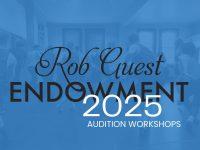 As a performance consultant I often talk with people who are looking for a “magic formula” – the secret to success. Does it exist? Possibly. However, let me introduce what I call the CORE Principle, a recipe for generating success that relies on YOU.
As a performance consultant I often talk with people who are looking for a “magic formula” – the secret to success. Does it exist? Possibly. However, let me introduce what I call the CORE Principle, a recipe for generating success that relies on YOU.
Confidence:
Confidence is the driving force behind performance. Increased confidence leads to increased success, which increases confidence, then success, and so on … a cyclic effect. A performer lacking in confidence may see success as the result of “luck” rather than skill/ability. In so doing, such performers are more at risk of experiencing feelings of being over-whelmed, stressed, poorly focused, lacking concentration and even fearing failure.
Performers who are consistently “on the mark” focus on the present moment. They trust their abilities, and don’t allow mistakes to impede their performance. They are leveraging their self-confidence to capture and engage the power of their beliefs, attitudes and thoughts about their ability to create a consistently strong performance.
The more confidence you have in your abilities – and yourself – the more likely you will execute a strong performance … all the time.
Overcoming roadblocks:
Confidence can be a very fragile thing. It is often built up or broken down purely as a result of the “signals” being sent from significant others – fellow performers, producers, coaches, family, past experiences and even from within.
For those struggling to grow/maintain their confidence there are some common roadblocks that can be overcome to move forward.
- High expectations – “All or nothing” mentality – if expectations are set at an unrealistically high level it can be a recipe for failure.
- Self-doubt – Having “butterflies” prior to a performance is normal – letting it grow to nervousness and fear can be detrimental to a good and well-rehearsed performance.
- Listening to others – Receiving a “tongue lashing” from a coach/producer or even fellow performers can greatly impact on self confidence.
- Not believing you can do it – Start to wonder why the effort to practice and perform should be made in the first place, as the end result is “obvious”.
- Negative past experiences – “Ordinary” performers utilise their past negative experiences to influence present challenges and often fail to focus on the task at hand.
- Perfectionism – Failure to accomplish “perfectionist expectations” creates doubt in place of belief, leading to self talk such as “am I really as good as I thought I was”.
- Lack of belief in method/mechanics – To not fully believe you have the best method/steps/routine and so on, or the best coaching, can seriously undermine confidence.
- Nagging injuries – Focusing on an injury more than a performance can potentially create self-doubt in the ability to perform well.
- Poor practice/warm-up – A lack lustre practice or pre-performance warm-up can lead a performer to doubt the quality of the performance itself.
Resolution:
Performers who experience confidence-related issues are not necessarily destined for failure.
Consider the following:
- Quality practice – Apply the principle of focused practice instead of the more “normal” long hours of hard slogging.
- Believe in your ability – Believing you have trained/practiced well, and trusting yourself to “do the job at hand”, will lessen the potential for tension and nervousness.
- Seek positive people – Performers who surround themselves with people who demonstrate positive beliefs can find they are more likely to be (strongly) supported rather than belittled.
- Success breeds success – Surround yourself with people who are successful. Discover what they do well, and how they do it; learn from how they handle mistakes.
- Quality coaching/instruction – Find a coach who understands the importance of physical skills, but also helps you build mental toughness.
- Fitness routine -A regimen for body and mind heath, once established, can boost your confidence in achieving your goals.
Engagement:
The first step to greater confidence starts with keeping a journal of the times you think confidently as opposed to doubting your ability. Identifying when/how the confident versus doubting thoughts occur can serve toward developing a plan of action to move forward.
Next, keep a journal of what you have dome well in the past. This can reinforce the belief that the skills to perform well actually do exist, and build trust that your abilities will lead to improved performance.
As a performer, your confidence can be greatly improved though positive self talk.
Practice using statements like:
- I have earned the right to perform with confidence.
- I use errors/mistakes as opportunities to grow.
- I will keep my composure even when a mistake is made.
- I will seek to utilise only confidence-boosting thoughts.
- I am in control of my thoughts, beliefs and abilities.
- No-one else can control how I perform.
Be proactive … accept responsibility for your own thoughts and beliefs.
Remember, success builds confidence, confidence leads to success, and … yes, it really is a cycle.
Check out Jeff’s website www.redriverjourney.com.au












